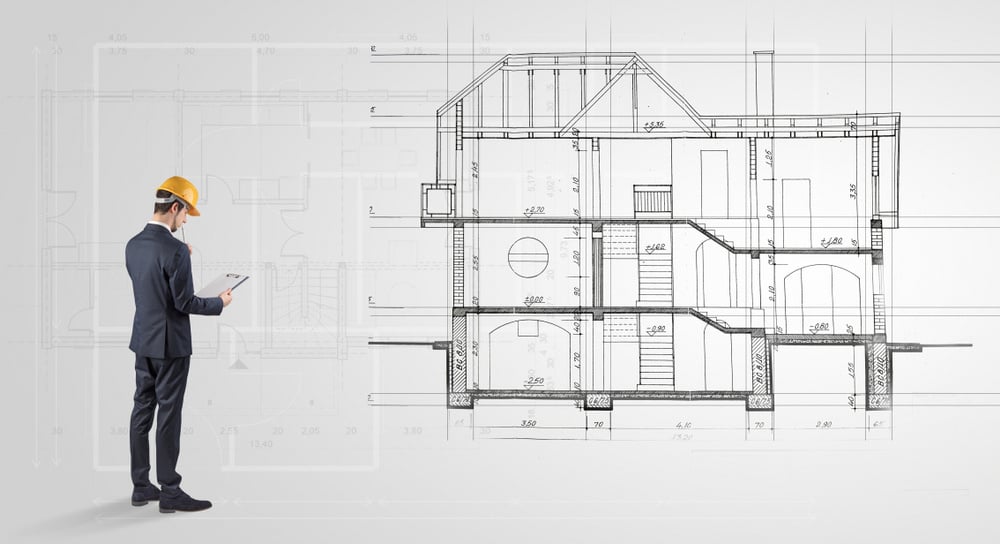Tips for Buying a New Construction Home

The housing market in 2025 offers unique opportunities and challenges for homebuyers, particularly for those interested in purchasing a newly constructed home. With advancements in technology, design trends, and an ever-evolving real estate market, it’s essential to approach buying a new build with careful consideration and preparation. Here are some key tips to ensure you make the right choice and get the best value when buying a new home build this year.
Understand the Current Market Conditions
Before diving into the world of new home construction, it’s crucial to understand the state of the housing market in 2025. After years of fluctuating interest rates, we are entering a phase of stabilizing mortgage rates and a competitive but not overheated market. However, construction costs remain high, which may impact the price of newly built homes. Research local market trends, as they can vary significantly from one region to another. Are homes selling quickly, or is there room to negotiate? Understanding these dynamics will give you a solid foundation for your buying strategy.
Work with a Real Estate Agent Specializing in New Construction
While many buyers think they can handle a new construction purchase without an agent, a real estate professional can be incredibly valuable. They understand how to navigate builder contracts, help you avoid common pitfalls, and ensure you're getting the most for your money. A good agent can also provide insight into the reputation of different builders and help you compare various neighborhoods and home styles.
Pro Tip: Watch my podcast for expert insights → Buying a New Home Build in 2025? Avoid This Huge Costly Mistake.
Evaluate the Builder’s Reputation
Not all builders are created equal. When buying a new home, the reputation of the builder is just as important as the property itself. Research online reviews, ask for recommendations, and speak to previous buyers to get a sense of the builder's track record. Check how responsive they are to issues post-construction and whether they honor their warranties and promises.
Pro Tip: If possible, visit homes built by the same builder in the past. Pay attention to the quality of materials, craftsmanship, and how well the homes have aged.
Inspect the Property During Construction
One of the advantages of buying a new build is that you have the opportunity to inspect the property during the construction process. Make sure you schedule regular site visits to monitor progress and ensure everything is being built according to plan. This also gives you a chance to catch potential issues before they become more complicated (and expensive) down the road.
Pro Tip: Consider hiring an independent home inspector to do a pre-drywall inspection. This is an excellent way to check that all systems are in place and functioning properly before the walls are closed up.
Understand What’s Included in the Base Price vs. Upgrades
Builders often offer a variety of upgrades and options to customize the home, but these can quickly add up. Be sure to understand what is included in the base price of the home and what’s considered an upgrade. You may be able to save money by choosing more affordable options or skipping upgrades that don’t add significant value.
Pro Tip: Consider whether certain upgrades can be done after the sale, especially if the builder is charging a premium. For example, you might be able to install upgraded flooring or landscaping at a lower cost after closing.
Ask About Energy Efficiency and Smart Home Features
As energy efficiency becomes increasingly important to homeowners in 2025, many new builds are offering advanced features like smart home technology, solar panels, and high-efficiency HVAC systems. These upgrades can save you money in the long term by reducing energy costs. Make sure to ask about the energy-efficient features of the home, as well as the home’s Environmental Impact Rating (if available).
Pro Tip: Check if the builder offers green building certifications, such as LEED (Leadership in Energy and Environmental Design). Homes with these certifications may have long-term cost savings and environmental benefits.
Factor in Homeowners Association (HOA) Fees
If you’re purchasing a home in a new community, there’s a good chance it will be governed by a Homeowners Association (HOA). Be sure to inquire about HOA fees, what they cover, and any restrictions or rules the HOA may impose. While HOA-managed communities often provide amenities like parks, pools, and security, the fees can add up over time, so it's important to budget accordingly.
Pro Tip: Ask about the financial health of the HOA, especially in new communities. A poorly funded HOA may struggle to maintain common areas or address repairs, potentially leading to higher fees down the line.
Negotiate for Incentives or Upgrades
Many builders are offering incentives to attract buyers in 2025, especially in a more balanced market. These could include discounts on upgrades, assistance with closing costs, or even better financing terms. Don’t hesitate to negotiate. If you’re purchasing in a new community, the builder may be willing to offer you a better deal to close a sale quickly, especially if they’re looking to sell multiple homes in the neighborhood.
Pro Tip: If you’re purchasing early in the development, consider negotiating for customizations like layout changes or unique finishes that may be harder to request once the development is complete.
Consider Future Resale Value
Even though you’re focused on buying a new home, it’s important to keep the future in mind. Will your new home be easy to sell later on? Is the community likely to appreciate in value? Think about the long-term value of the property, considering factors like location, proximity to schools, work, and amenities. If the area is expected to grow, your home may be a good investment.
Pro Tip: Research the builder’s track record for creating desirable, high-demand communities. The success of previous projects can often predict how well a new neighborhood will perform.
Be Prepared for a Lengthy Closing Process
Due to the complexity of new construction projects, the closing process for newly built homes can take longer than with existing homes. Make sure you understand the builder’s timeline and have realistic expectations for when you will actually be able to move in. In some cases, delays due to weather, material shortages, or unforeseen circumstances are common, so it’s important to stay patient.
Pro Tip: Stay in constant communication with the builder’s representative to keep track of progress and any changes to the timeline. This will help reduce surprises as your move-in date approaches.
Happy House Hunting!
Buying a new home in 2025 can be an exciting and rewarding experience if you approach it with the right knowledge and mindset. By understanding the market, working with professionals, evaluating the builder, and keeping an eye on long-term value, you can make a well-informed decision that sets you up for years of happiness in your new home. With careful planning and due diligence, your new build will not only meet your needs today but serve you well into the future.
The Angst Real Estate Team
If you are thinking about purchasing a new construction home we’d love to work with you to help make the process as smooth as possible. Drop me an email or text/call at 775-525-0309.
Find even more tips for buying a home in our book, The Essential Handbook for Buying Your Home. For a free, no-obligation copy please contact us here.
S.168655
#realestate #homebuying #househunting #newconstruction #firsttimehomebuyers #angstrealestateteam #livinginsouthreno #HautepropertiesNV #makememove #renorealestate #renohomes #nevadarealestate #renotahoe #renoliving #renonv #nevada #renorealtor #realtor

